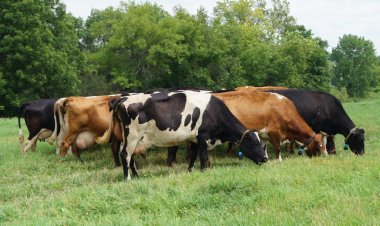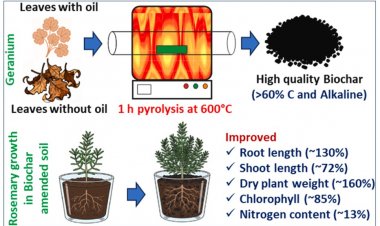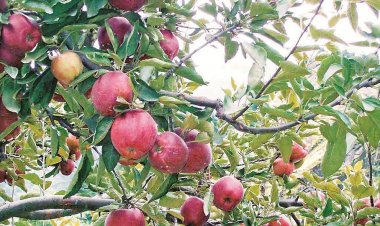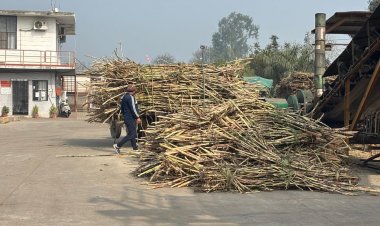Making aviation fuel from corn ethanol is not beneficial, will lead to more carbon emissions
The US aviation industry has set a target of net zero carbon emissions through sustainable aviation fuel by the year 2050. The main thing about this goal is that for this, fuel produced from ethanol of corn or vegetable oil will be used. But recent studies show that crop-based biofuels actually increase carbon emissions. Not only this, because of this the land used for food production is diverted for ethanol production
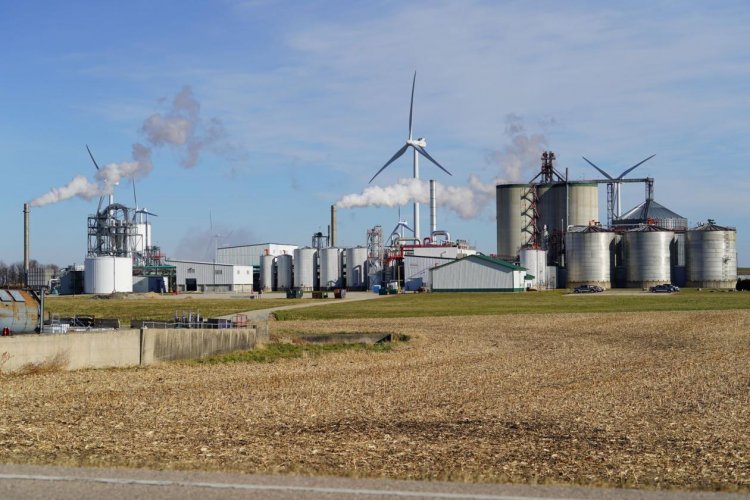
The US aviation industry has set a target of net zero carbon emissions through sustainable aviation fuel by the year 2050. The main thing about this goal is that for this, fuel produced from ethanol of corn or vegetable oil will be used. But recent studies show that crop-based biofuels actually increase carbon emissions. Not only this, because of this the land used for food production is diverted for ethanol production.
According to a report by the World Resources Institute (WRI), this step by the American aviation industry will be in the wrong direction. In 2019, 150 million tons of carbon dioxide were emitted from America's domestic flights. This was about three percent of the country's total carbon emissions. Given the rapid growth in air travel, emissions from aviation in the US and around the world are expected to double by 2050.
Aviation fuel will increase emissions from crops
Many scientists and international regulatory bodies have concluded based on research that growing crops for aviation fuel does not actually reduce emissions. They say that for the production of these crops, forests will have to be cut and pasture land will also have to be used for farming. When forest or pasture lands are used for crop production, the carbon stored in them is released. In the future, carbon storage in the soil is also very less. Thus, this step will badly affect food security and forests across the world in the times to come.
According to the study, producing aircraft fuel from crops does not seem economically viable. For example, to produce one gallon of sustainable aviation fuel, 1.7 gallons of corn ethanol is required. If America meets its target, it needs 35 billion gallons of sustainable aviation fuel. To get the amount of maize needed to prepare it, maize will have to be cultivated in more than 20% (maize area) area as compared to now.
According to the report, some other products like animal feed are also extracted in ethanol production. Even if this fact is included, the amount of corn required for biofuel production will ultimately increase food prices and increase the problem of hunger.
Soya oil option is also not viable
The impact of making sustainable aviation fuel from soy oil will be greater than that of corn, because in terms of energy production, soy is more effective than corn. At present, new production of vegetable oil is taking place especially in the area of oil palm and soybean cultivation. But because of these, forests are also being cut. From this perspective, if one-fourth of the world's aviation fuel requirement is to be met by vegetable oils by the year 2050, then their production will have to be doubled.
Another important thing has been mentioned in the study. It is about the technology of extracting carbon from the air. According to this, relatively less land will be required to remove the emissions from 35 billion gallons of petroleum jet fuel. For example, 35 billion gallons of petroleum jet fuel would emit 434 million tons of carbon dioxide each year. If solar energy based Direct Air Capture (DAC) technology is used, then 37 lakh acres of land will be required for it. Seen this way, corn for ethanol will have to be cultivated in 30 times more land.



 Join the RuralVoice whatsapp group
Join the RuralVoice whatsapp group



















